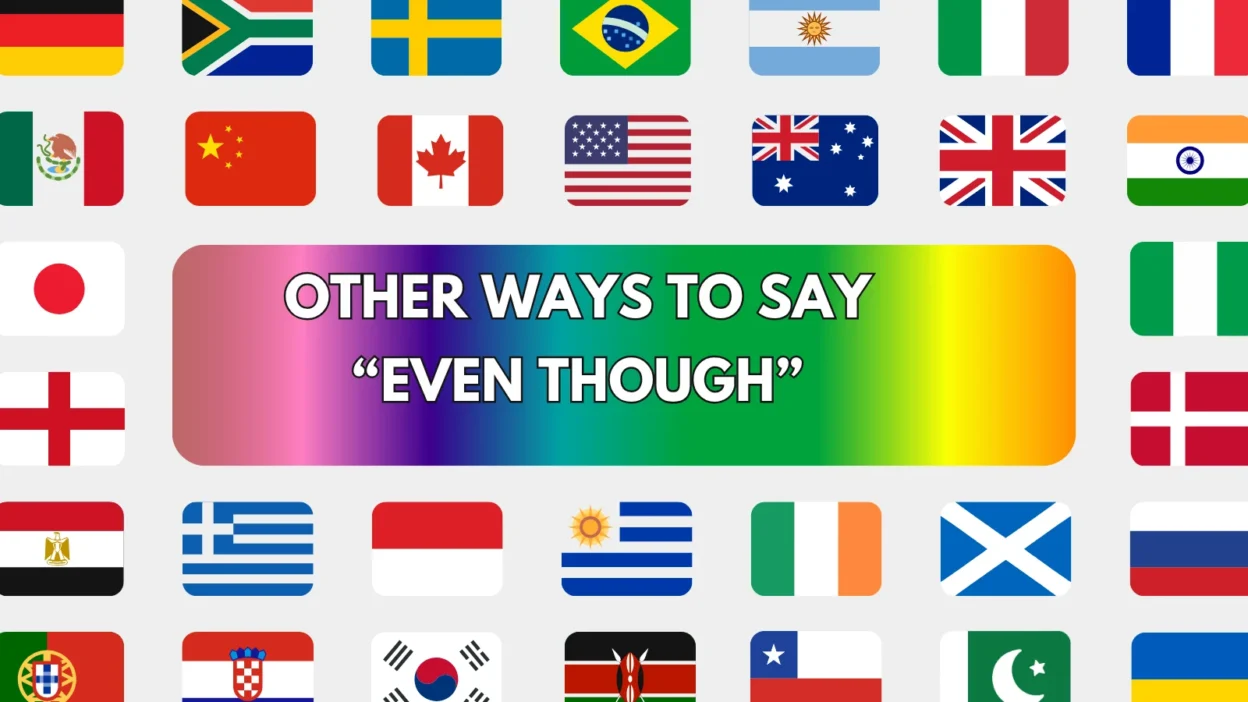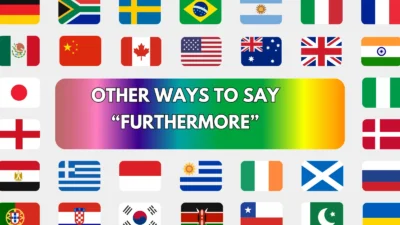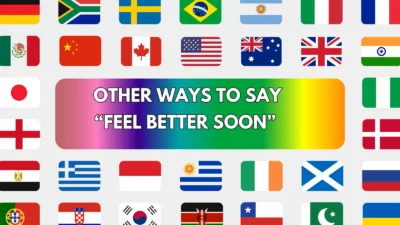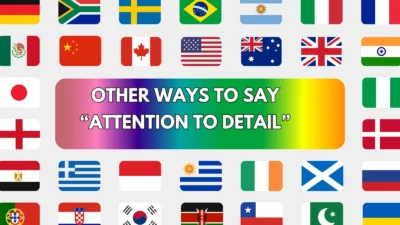The phrase “even though” is used to show contrast between two ideas — something that happens despite something else. It’s a powerful way to express unexpected outcomes, but repeating it too often in writing or speech can sound repetitive.
This article presents 25 useful and context-specific alternatives to “even though” that improve clarity and sophistication. These phrases help you express contradiction, contrast, or surprise in more engaging and professional ways.
1. Although
Meaning:
Introduces a contrast between two ideas or facts.
Detailed Explanation:
A close synonym to “even though”, “although” is slightly more formal and frequently used in writing to show contradiction without diminishing either side.
Scenario Example:
Although it was raining, they went ahead with the picnic.
Best Use:
Essays, reports, business writing.
Tone:
Formal, neutral.
2. Though
Meaning:
Shows contrast between two parts of a sentence.
Detailed Explanation:
Less formal than “although”, but very versatile. It can be used at the beginning, middle, or end of a sentence.
Scenario Example:
She accepted the job, though it required her to relocate.
Best Use:
Emails, everyday writing, dialogue.
Tone:
Casual, flexible.
3. Even if
Meaning:
Describes a situation that would still happen under different conditions.
Detailed Explanation:
“Even if” emphasizes hypothetical or extreme contrast, suggesting determination or inevitability.
Scenario Example:
I’ll support you even if no one else does.
Best Use:
Speeches, promises, persuasive writing.
Tone:
Emphatic, motivational.
4. Despite the fact that
Meaning:
Expresses something happening in contrast to a known truth.
Detailed Explanation:
A more formal and extended way of showing contradiction. Best used in writing that requires careful, balanced language.
Scenario Example:
Despite the fact that she was new, she led the team efficiently.
Best Use:
Academic papers, formal documents.
Tone:
Sophisticated, formal.
5. In spite of the fact that
Meaning:
Shows something occurred contrary to expectations.
Detailed Explanation:
Similar to “despite the fact that,” but adds a slightly more emotional or expressive tone.
Scenario Example:
In spite of the fact that they trained hard, they didn’t win.
Best Use:
Essays, storytelling.
Tone:
Emotional, descriptive.
6. Whereas
Meaning:
Indicates a contrast between two ideas.
Detailed Explanation:
Often used in comparisons, particularly in formal writing, to draw attention to differences.
Scenario Example:
He enjoys risk, whereas she prefers stability.
Best Use:
Contracts, analytical writing, comparisons.
Tone:
Formal, objective.
7. While
Meaning:
Connects two contrasting statements.
Detailed Explanation:
“While” shows contrast but can also indicate time — be sure the context makes the meaning clear.
Scenario Example:
While I respect your opinion, I disagree with your approach.
Best Use:
Balanced writing, discussions.
Tone:
Neutral, professional.
8. Nevertheless
Meaning:
Shows something happened despite previous obstacles.
Detailed Explanation:
A powerful transition word often used to continue a point that seems contradictory to the last one.
Scenario Example:
The conditions were harsh; nevertheless, they succeeded.
Best Use:
Reports, essays, speeches.
Tone:
Formal, impactful.
9. Nonetheless
Meaning:
Indicates that something occurred despite what was expected.
Detailed Explanation:
Very similar to “nevertheless” and adds a polished touch to writing or speech.
Scenario Example:
He lacked experience; nonetheless, he was hired.
Best Use:
Formal writing, presentations.
Tone:
Professional, refined.
10. Yet
Meaning:
Introduces contrast between two ideas.
Detailed Explanation:
A short and powerful alternative to “even though,” often used for emphasis.
Scenario Example:
She was exhausted, yet she continued working.
Best Use:
Narrative, persuasive writing.
Tone:
Dramatic, concise.
11. But still
Meaning:
Adds a conversational twist to a contrast.
Detailed Explanation:
Used when acknowledging something but emphasizing an unexpected result.
Scenario Example:
He didn’t study much, but still passed the exam.
Best Use:
Informal writing, dialogue.
Tone:
Casual, expressive.
12. Albeit
Meaning:
Introduces a contrast within the same sentence.
Detailed Explanation:
More formal and concise — used to insert a brief contradiction.
Scenario Example:
The results were promising, albeit limited.
Best Use:
Formal writing, reports.
Tone:
Sophisticated, concise.
13. But
Meaning:
Shows direct contrast or contradiction.
Detailed Explanation:
A simple, widely used word to express disagreement or contrast. Best used when the contradiction is clear and straightforward.
Scenario Example:
He’s very skilled, but he lacks confidence.
Best Use:
Everyday language, writing, speech.
Tone:
Neutral, universal.
14. Still
Meaning:
Emphasizes persistence despite a condition.
Detailed Explanation:
Used to suggest that something continues or is true in contrast to a difficulty.
Scenario Example:
She faced criticism. Still, she stayed focused.
Best Use:
Narrative, reflective writing.
Tone:
Empathetic, firm.
15. Yet somehow
Meaning:
Indicates something unexpected happened.
Detailed Explanation:
Adds emotional or dramatic emphasis when the outcome contradicts the situation.
Scenario Example:
He had no formal training, yet somehow delivered a perfect performance.
Best Use:
Storytelling, presentations.
Tone:
Expressive, surprising.
16. Even so
Meaning:
Shows that something remains true despite the facts.
Detailed Explanation:
Suggests surprise or defiance of logic — often used to highlight persistence or emotion.
Scenario Example:
It was risky. Even so, they moved forward.
Best Use:
Persuasive writing, speeches.
Tone:
Bold, emotional.
17. Alright, but
Meaning:
Introduces a contradiction with a softer tone.
Detailed Explanation:
Used in conversations to acknowledge a point while offering a counterpoint.
Scenario Example:
Alright, but we still need a backup plan.
Best Use:
Discussions, informal writing.
Tone:
Casual, cooperative.
18. But regardless
Meaning:
Introduces a decision or action in spite of facts.
Detailed Explanation:
Emphasizes moving forward despite known circumstances.
Scenario Example:
It may fail, but regardless, we must try.
Best Use:
Motivational writing, debates.
Tone:
Determined, direct.
19. Be that as it may
Meaning:
Acknowledges something while introducing a contrasting point.
Detailed Explanation:
Very formal and slightly old-fashioned — adds elegance to arguments or writing.
Scenario Example:
Be that as it may, we cannot change the deadline.
Best Use:
Formal discussions, debates.
Tone:
Sophisticated, firm.
20. Alright then
Meaning:
Suggests reluctant acceptance or contradiction.
Detailed Explanation:
A casual phrase often used when agreeing to proceed despite concerns.
Scenario Example:
Alright then, let’s give it a try — even if it fails.
Best Use:
Conversations, informal settings.
Tone:
Friendly, adaptive.
21. Yet still
Meaning:
Highlights that something is continuing despite contrast.
Detailed Explanation:
A poetic or dramatic way of emphasizing surprise or persistence.
Scenario Example:
They were warned, yet still went ahead.
Best Use:
Storytelling, poetic writing.
Tone:
Dramatic, emotional.
22. Though admittedly
Meaning:
Acknowledges a weakness before giving a counterpoint.
Detailed Explanation:
Adds subtlety to arguments, showing honesty before asserting contrast.
Scenario Example:
Though admittedly inexperienced, he proved himself quickly.
Best Use:
Balanced writing, persuasive content.
Tone:
Humble, smart.
23. However
Meaning:
Contrasts two ideas or statements.
Detailed Explanation:
Formal and widely accepted, “however” is a go-to transition for showing contradiction.
Scenario Example:
The concept sounds simple. However, execution is difficult.
Best Use:
Formal writing, essays, reports.
Tone:
Professional, smooth.
24. Conversely
Meaning:
Indicates an opposite point or perspective.
Detailed Explanation:
Great for comparing two opposing outcomes or views.
Scenario Example:
Some people enjoy the flexibility. Conversely, others struggle with it.
Best Use:
Analytical writing, debates.
Tone:
Academic, clear.
25. Though still
Meaning:
Adds contrast while showing continuity.
Detailed Explanation:
Implies resilience or unexpected continuation despite a condition.
Scenario Example:
It was stormy, though still they went outside.
Best Use:
Storytelling, poetic or narrative writing.
Tone:
Reflective, warm.
Conclusion
Using “even though” is helpful, but when overused, it loses impact. These 25 versatile and nuanced alternatives help you express contrast, contradiction, and determination more effectively — whether you’re writing an essay, giving a speech, or simply sharing a story.

Naz Fatima is an author at Saypadia who specializes in writing clear, relatable, and reader-friendly content about language, expressions, and modern terminology. She enjoys breaking down meanings with real-life context so readers can quickly understand and apply them. Naz’s work reflects a strong commitment to clarity, accuracy, and helping users find quick answers without confusion.




